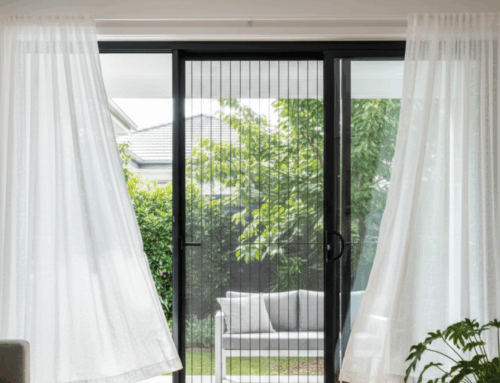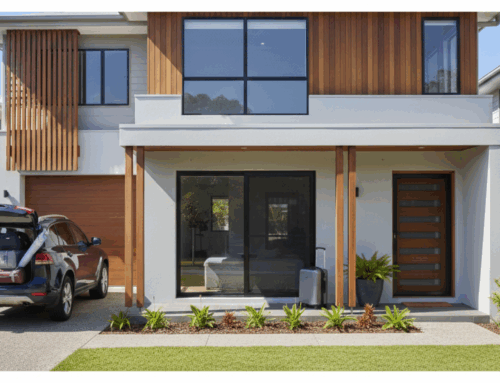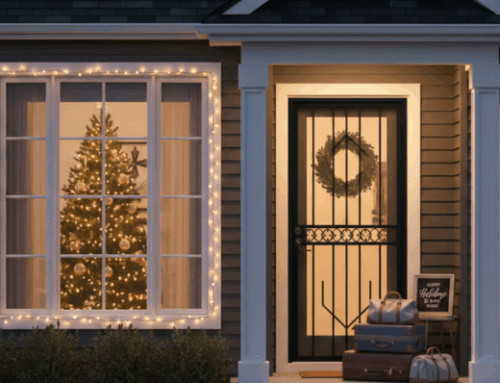Choosing the right material for your security screens is more than just a style decision—it’s about safety, durability, and long-term value. Homeowners and property managers often find themselves torn between aluminium and stainless steel. Both materials have their advantages, but which one truly delivers when it comes to keeping your property secure?
At Brisbane Security Screens, we’ve helped countless clients make the best choice for their homes and businesses. In this guide, we dive deep into the differences between aluminium and stainless steel security screens to help you decide which one suits your needs best.
Strength Showdown: Which Metal Stands Up to Intruders?
When it comes to security, strength is non-negotiable. Stainless steel is the clear winner in this department. Thanks to its dense composition, stainless steel mesh can withstand greater impact and force without bending or breaking. It’s highly resistant to cutting, making it an ideal choice for high-security applications.
Aluminium, on the other hand, while still durable, is lighter and more malleable. High-grade aluminium screens can offer a good level of protection, especially when reinforced, but they typically can’t match the brute strength of stainless steel.
Rust Wars: How Each Metal Handles Weather and Time
Living in Australia, and particularly in areas like Brisbane, means dealing with coastal air, humidity, and sometimes extreme weather. Corrosion resistance is a key factor.
Stainless steel—especially marine-grade 316 stainless steel—offers excellent rust resistance, even in harsh conditions. It’s the go-to for homes near the ocean or in humid climates, where corrosion is a real concern.
Aluminium is naturally rust-resistant due to its oxide layer, but it’s not immune to corrosion, particularly if the surface is scratched or if low-quality alloys are used. Powder coating can improve its resilience, but it’s still generally less resistant than high-quality stainless steel.
Weight Matters: The Surprising Impact on Installation and Use
Aluminium’s lightweight nature is both a blessing and a curse. It’s easier to transport, handle, and install, which can reduce labor costs and time. For large-scale projects or situations where weight is a concern (like second-story windows), aluminium may be the preferred choice.
Stainless steel, while heavier, offers a more solid and sturdy feel. Its weight can sometimes require reinforced framing and professional installation, which is something we at Brisbane Security Screens always take into account when planning for our clients’ needs.
Cost vs. Value: What Are You Really Paying For?
It’s tempting to look at upfront costs when making a decision, and here aluminium usually comes out on top. It’s less expensive to produce and install, making it an appealing choice for budget-conscious buyers.
However, stainless steel security screens are often a better long-term investment. They may cost more initially, but their longevity and minimal maintenance can make them more cost-effective over time. When evaluating cost, it’s essential to consider how often you’ll need to replace or repair the screens down the road.
Visibility and Ventilation: Who Wins in Everyday Comfort?
Security screens shouldn’t compromise your lifestyle. Visibility and airflow are important factors, especially in a climate like Brisbane’s.
Stainless steel mesh generally offers superior visibility thanks to its thin, high-tensile wires, which provide a nearly invisible barrier without sacrificing strength. It also allows for better airflow, making it perfect for homeowners who want to keep their homes cool without inviting pests or compromising security.
Aluminium mesh can vary in thickness and openness, which can slightly reduce both visibility and ventilation. Some higher-grade aluminium screens are better in this respect, but they still tend to fall just short of the natural transparency stainless steel provides.
Maintenance Face-Off: Which One Demands Less from You?
Nobody wants to spend weekends scrubbing their security screens. Thankfully, both aluminium and stainless steel are relatively low-maintenance, but there are differences.
Stainless steel requires occasional cleaning, especially in coastal areas, to maintain its appearance and prevent tea staining (a form of surface discoloration). This cleaning is typically simple and infrequent when proper grades are used.
Aluminium screens, particularly those with powder coating, are easier to clean and more forgiving when it comes to discoloration. However, cheaper aluminium options may fade or become brittle over time, which could require full replacement rather than a simple touch-up.
Aesthetic Appeal: Sleek Modern or Industrial Tough?
Security screens have come a long way in terms of design. Homeowners no longer have to choose between function and form.
Stainless steel screens tend to offer a sleek, minimal look that blends seamlessly with modern home designs. The mesh is fine and uniform, and the frame can be customized to match existing window or door finishes.
Aluminium screens, with their broader range of styles and coatings, offer more variety for those who want a particular color or design. They can be matched to traditional or contemporary architecture but may look bulkier due to the nature of the mesh.
Real-Life Durability: What Happens in a Break-In Attempt?
Here’s where the rubber meets the road. If someone tries to break into your home, will your screen hold up?
Stainless steel mesh has passed numerous industry-standard tests, including dynamic impact, knife shear, and jemmy tests. It’s tough enough to resist most break-in methods, making it one of the most reliable choices for true security.
Aluminium mesh can also perform well under test conditions, but typically only at the higher end of the quality spectrum. In real-life scenarios, it may not provide the same level of resistance as stainless steel, especially under repeated or forceful attacks.
Environmental Impact: Which Option Is Greener?
Sustainability is becoming a more important factor in home improvement decisions. Both aluminium and stainless steel are recyclable, but their environmental impact varies.
Aluminium production is energy-intensive, but the metal is 100% recyclable without loss of properties. In fact, a large portion of the aluminium used in manufacturing today is recycled.
Stainless steel also has a high recycled content and is fully recyclable, but its heavier weight and more complex processing can lead to a larger carbon footprint in some cases. However, its long lifespan can offset this over time, making it a solid sustainable choice when installed correctly.
The Verdict: Choosing the Right Metal for Your Security Needs
So, aluminium vs stainless steel—what’s the verdict?
If you’re looking for the highest level of security, long-term durability, and minimal visual disruption, stainless steel is the superior option. It’s ideal for homes in coastal areas, those with a modern aesthetic, or anyone who places top priority on strength and safety.
Aluminium, on the other hand, is a cost-effective alternative that still provides solid performance, especially when quality products are used. It’s a great fit for lower-risk areas or for homeowners working within a tight budget.
At Brisbane Security Screens, we offer both aluminium and stainless steel security solutions tailored to your specific needs. Our team can walk you through the pros and cons in person and help you choose a product that matches your home, your lifestyle, and your peace of mind.
Whether you’re upgrading your family home or protecting an investment property, the choice between aluminium and stainless steel security screens should be an informed one. Contact Brisbane Security Screens today to explore your options and get expert advice backed by years of local experience.





Leave a Reply